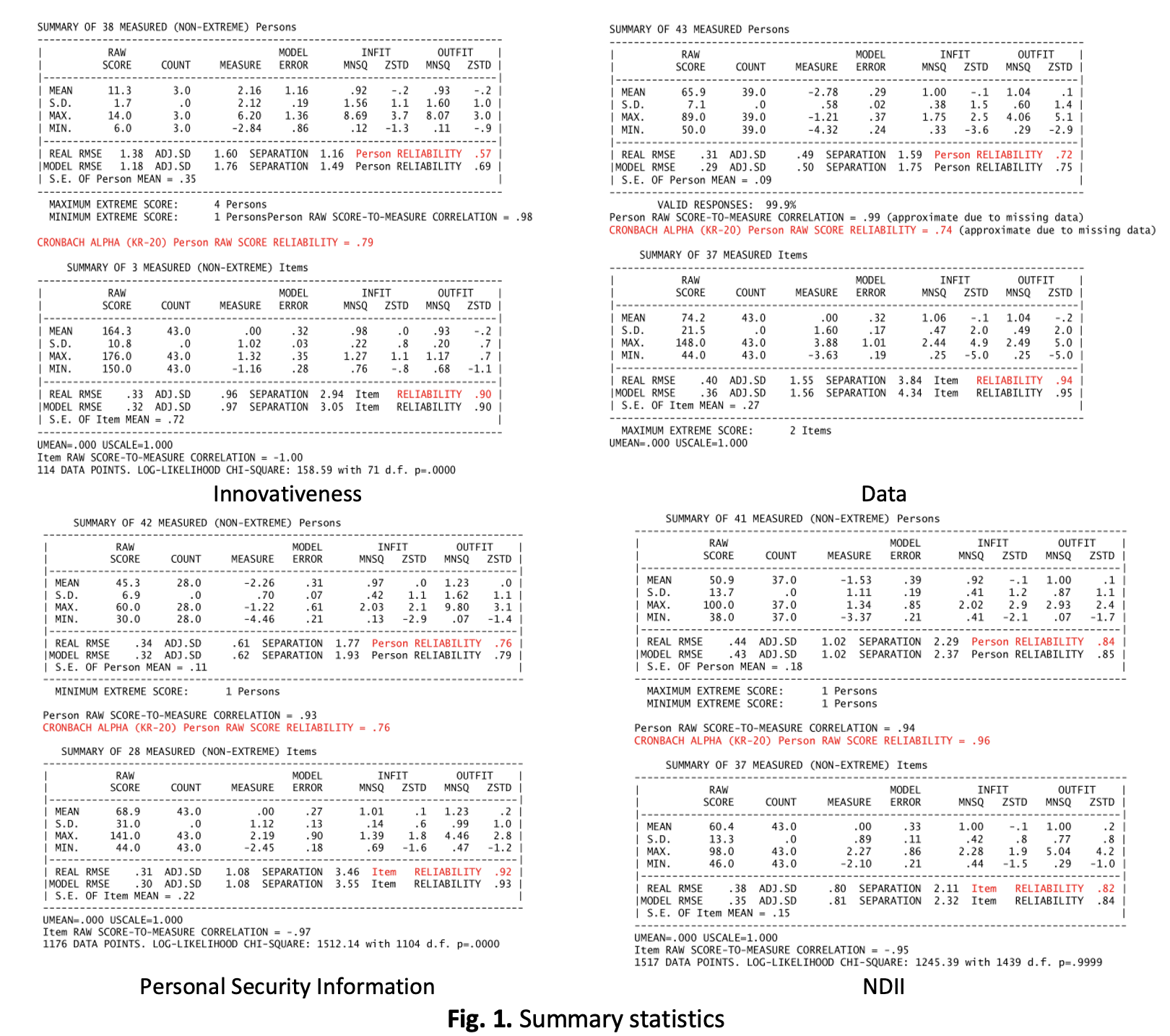Measuring the National Digital Identity Initiative in Malaysia: A Pilot Study with Rasch Measurement
DOI:
https://doi.org/10.37934/araset.38.2.153164Keywords:
National Digital Identity, public awareness, public perception, public acceptance, validity and reliability, Rasch measurementAbstract
This pilot study aimed to measure the level of public awareness, perception and acceptance of the National Digital Identity Initiative (NDII) in Malaysia using a validated research instrument. The research instrument underwent a comprehensive validation process, including expert validation and Rasch measurement analysis. A mixed-methods research design was used, including qualitative and quantitative data collection methods. Convenience sampling was used to select a sample of 43 participants aged 18 years and older who have access to the internet. Data was collected using a self-administered questionnaire that contained closed-ended questions with Likert scale response options. The results of the descriptive statistics showed that participants’ awareness of the NDII was low, while perception and acceptance was relatively high. The results of the study provide useful insights for policy makers and practitioners in the field and highlight areas for improvement in the implementation of the NDII. The use of Rasch measurement to validate the research instrument increases the validity and reliability of the study findings and enhances their relevance to the field. This pilot study contributes to the body of knowledge on public awareness, perception and acceptance of the NDII, especially in the Malaysian context. Future research can build on the findings of this study by conducting larger studies and exploring the factors that influence public acceptance of NDIIs in Malaysia.
Downloads





























